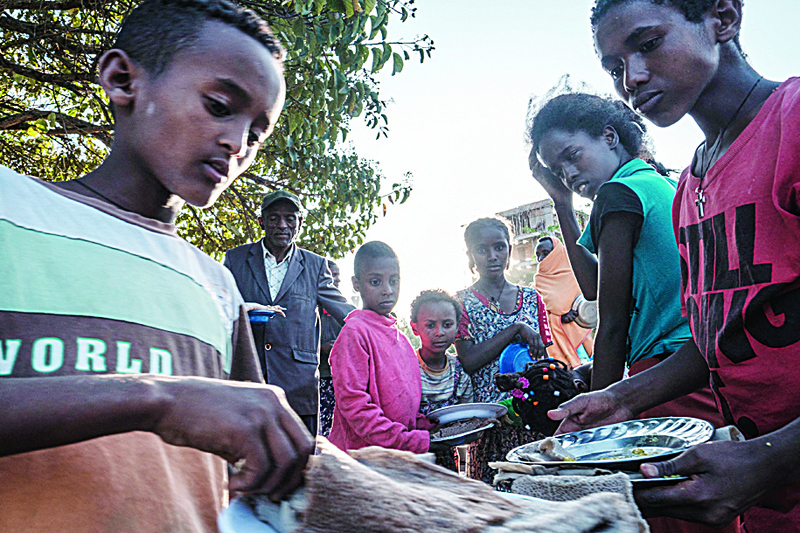ADDIS ABABA: Eritrean soldiers killed three people when they opened fire on civilians this week in Ethiopia's northern Tigray region, Amnesty International said. The incident took place in the town of Adwa early Monday, more than two weeks after Ethiopian Prime Minister Abiy Ahmed vowed Eritrean troops would leave Tigray amid a growing international outcry over human rights abuses.
AFP reported on the incident Tuesday, citing doctors and medical workers who said 19 people were injured, but had not confirmed the deaths. "Three people lost their lives and at least 19 others are in hospital from yet another unlawful attack by Eritrean troops on civilians in Tigray. Deliberate attacks on civilians are prohibited by international humanitarian law and must stop," Amnesty East Africa deputy director Sarah Jackson said in a statement.
Jackson reiterated Amnesty's call for an international investigation of human rights abuses in Tigray, including possible war crimes and crimes against humanity. Eritrea has not responded to requests for comment about the Adwa shootings. It has previously denied reports Eritreans have committed mass killings and rapes in the five-month-old conflict. Abiy, winner of the 2019 Nobel Peace Prize, sent federal troops into Tigray in November to detain and disarm leaders of the once dominant regional ruling party, the Tigray People's Liberation Front (TPLF).
He said the move came in response to TPLF-orchestrated attacks on army camps. Abiy declared victory within weeks, but combat has continued and analysts warn of a prolonged stalemate. Addis Ababa and Asmara long denied Eritreans were involved in the war, contradicting testimony from residents, rights groups, aid workers, diplomats and even some Ethiopian civilian and military officials. Abiy finally acknowledged their presence in March while speaking to lawmakers. It is unclear how many Eritrean soldiers are in the region or whether any have left in recent weeks.
Amnesty's statement Wednesday cited six witnesses who described how Eritrean soldiers drove through the center of Adwa shooting at random. "We scattered in different directions. I hid in the drainage... They were shooting from the backs of the moving trucks," said one witness, identified by the pseudonym Teklu for security reasons. Like witnesses interviewed by AFP, Teklu said the Eritreans were easily identifiable because they spoke Tigrinya -- the main language in Tigray and Eritrea -- rode in vehicles with Eritrean number plates and wore "Eritrean defence force camouflages".
Meanwhile, the United Nations Security Council was set to meet yesterday to discuss the crisis in Ethiopia's northern Tigray region following a US request, diplomatic sources said Wednesday. The 15 Security Council members will hear from UN humanitarian chief Mark Lowcock, who will talk about the continued difficulties in getting aid to refugees, according to the UN. In early March Lowcock called for Eritrea to withdraw its troops from Tigray, in the first recognition by a UN official of Eritrea's involvement in the fighting there.
UN officials in Geneva have accused the Eritrean army of committing war crimes and crimes against humanity in Tigray. Asmara rejects the accusations. Yesterday's meeting will be a closed-door session similar to the March 4 meeting on Tigray. At that time China and Russia opposed adopting a unanimous statement calling for an end to violence in the region as both countries consider the matter an internal Ethiopian affair.
Ethiopia is a longstanding US ally, but Washington has been increasingly alarmed since Prime Minister Abiy Ahmed launched a military offensive in Tigray in November. US Secretary of State Antony Blinken has spoken of "ethnic cleansing" in Tigray, where Eritrean troops also intervened to fight the local ruling party. - AFP



